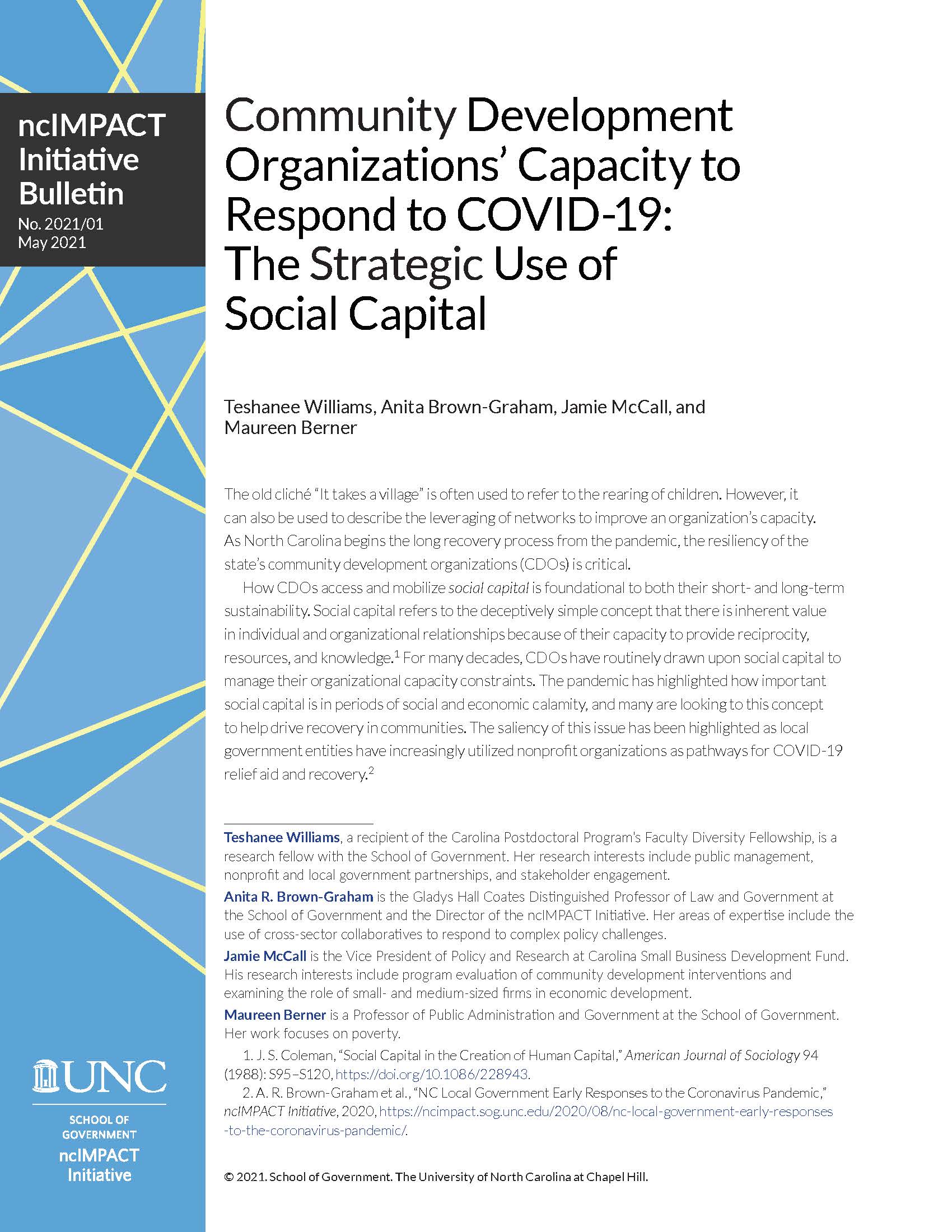ncIMPACT Initiative #2021/01
Community Development Organizations’ Capacity to Respond to COVID-19: A Theoretical Approach to the Strategic Use of Social Capital
The old cliché “It takes a village” is often used to refer to the rearing of children. However, it can also be used to describe the leveraging of networks to improve an organization’s capacity. As North Carolina begins the long recovery process from the pandemic, the resiliency of the state’s community development organizations (CDOs) is critical. How CDOs access and mobilize social capital is foundational to both their short- and long-term sustainability. Social capital refers to the deceptively simple concept that there is inherent value in individual and organizational relationships because of their capacity to provide reciprocity, resources, and knowledge. For many decades, CDOs have routinely drawn upon social capital to manage their organizational capacity constraints. The pandemic has highlighted how important social capital is in periods of social and economic calamity, and many are looking to this concept to help drive recovery in communities. The saliency of this issue has been highlighted as local government entities have increasingly utilized nonprofit organizations as pathways for COVID-19 relief aid and recovery.
This bulletin has been co-authored by Teshanee Williams, Carolina Postdoctoral Program Faculty Diversity Scholar; Anita R. Brown-Graham, Gladys Hall Coates Distinguished Professor of Public Law and Government and Director, ncIMPACT Initiative; Jamie McCall, vice president of policy and research for Carolina Small Business Development Fund, who is also an adjunct in the School's Master of Public Administration program; and Maureen Berner, Professor of Public Administration and Government.







